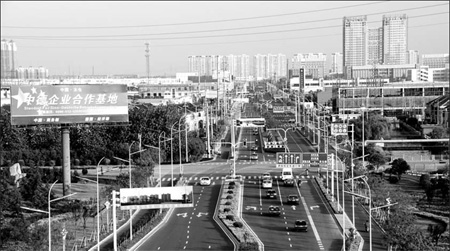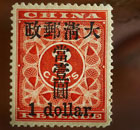Society
Suzhou survey: More IP protection needed
By Lu Wei (China Daily)
Updated: 2010-02-03 07:40
 |
Large Medium Small |
|
 Known as a center of Sino-German cooperation, Taicang in Jiangsu province is now home to more than 140 German-funded companies. |
Few German companies in Taicang are filing patent applications on their core technologies
Lack of confidence in the nation's intellectual property protection is a major reason foreign companies are reluctant to transfer core technologies to China, according to a recent survey in Taicang, a part of Suzhou in Jiangsu province.
The survey by the local intellectual property administration was sent to 100 German-invested companies in Taicang, 58 of which responded.
Respondents are mainstay foreign investors whose answers reflect the overall opinions of the target group, said Xue Gongliang, head of the Technical Market Management Office of Taicang Intellectual Property Bureau.
The survey results show that only 17 companies, less than one third of the total 58 respondents, have applied for patents in China.
Of the 17 that did file applications, 11 were granted a total of 30 patents - seven for designs and 23 for utility models, a form of patent that legally protects rights to a product's shape and structure.
Utility models and design patents are protected for a shorter duration and have less stringent requirements than an invention patent.
None of the German-funded companies in Taicang have yet to be granted invention patents.
Most respondent companies are involved in manufacturing highly engineered machinery, auto components and construction materials, which generally require extensive hi-tech processes to produce.
Forty respondent parent companies hold patents in Germany, but just three have registered patents in China.
Xue said German companies lack faith in the system and are concerned about protection of intellectual property so they are reluctant to transfer core technologies to their facilities in China.
Infringement on patents, trademarks and copyrights, as well as theft of technical know-how and trade secrets, still trouble the market and continue to cause concern among foreign investors, the Taicang survey found.
Helping companies maintain their intellectual property rights is already the consensus among the Taicang authorities, said Chen Huiliang, director of Taicang Intellectual Property Bureau.
"Through legal and administrative means, we spare no efforts to stop infringements that occur locally," Chen said.
"Yet it is beyond our capacity to handle infringements on Taicang companies' intellectual property rights in other places," he added.
Nationwide cooperation needed
Frustrated with patent infringements outside Taicang, Xia Yuanhai, general manager of Suzhou Tox Pressotechnik Co Ltd - the first German-invested company to apply for patents in China and also one of the survey respondents - cited local protectionism in some regions as well as prohibitive costs of collecting evidence and filing court cases as obstacles to protecting intellectual rights.
"We can not find a satisfying way to solve these problems," Xia said.
Though he admitted the Taicang government is trying to build a sound intellectual property environment, he said his company would develop better if authorities in other regions cracked down hard on infringement.
Xia said joint infringement control effort among regions would better fight unauthorized sale of patented products as well as the production and sale of counterfeit goods, which are often sold at the same time in different places.
Xia's opinion was reflected in the survey's suggestions to the government, which include enhancing communication with the administrative and legal departments and establishing a nationwide system to rate the good will of companies. Once infringements are found, infringers should be disclosed to the public, the recommendations said
As one of 26 key national patent protection bases, Taicang will enhance cooperation with other regions addressing the trans-regional infringements, Chen said.
National patent protection centers selected by the State Intellectual Property Office (SIPO) are authorized to provide information and advice on building an intellectual property system while participating in discussion about major issues affecting patent protection.
Participation by the centers is important in exchanging information, leveraging advanced experience across the entire country and helping improve the performance of law enforcement, according to SIPO.
The first 10 patent protection centers were announced in April 2009 and a second list of 16 bases was released last November.







